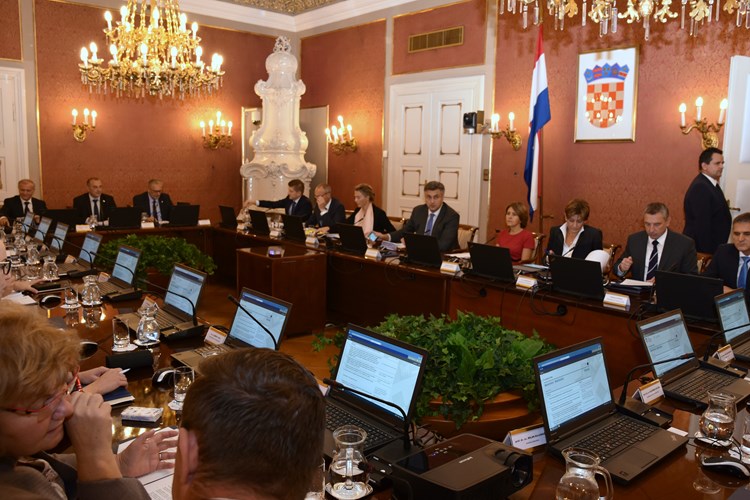


Environmental Protection and Energy Minister Tomislav Coric explained that connecting the refinery to the gas transport system in Bosnia and Herzegovina was not possible, so the solution was to transport gas from Croatia by re-purposing the Slobodnica-Brod gas pipelines.
Prime Minister Andrej Plenkovic said that residents of the Sava River valley at Slavonski Brod and Bosanski Brod had been dealing with air pollution for years and that the solution which the government adopted today would improve the air quality and reduce health risks.
The Croatian government on Thursday forwarded to the parliament the Final Homeland Security Bill on ensuring conditions for harmonised and coordinated risk management and adopted a decision enabling the relocation of an additional 100 nationals of third countries or persons without citizenship who meet requirements to be granted international legal protection.
The Final Homeland Security Bill defines the homeland security system which consists of the resources of police, defence, security-intelligence system, healthcare, civil protection, foreign affairs services, the business sector and other services involved in identifying, reducing and/or removing security risks of importance to the national security.
Croatia needs partnership for security
Croatia needs partnership for security to respond to new security risks from which a homeland security system will arise.
The establishment of such a system is defined in the National Security Strategy which was defined and adopted after 15 years, Defence Minister Damir Krsticevic said, stressing that achieving the highest level of security, protection of citizens and critical infrastructure and developing a strong defence and public security system were a strategic goal.
To that end, conditions should be ensured for coordinated risk management so that risks are removed or reduced to an acceptable level, he said, adding that the bill defined services comprising the homeland security system.
The central body of the homeland security system is the National Security Council, which directs the work of the homeland security system and not only of the security-intelligence system. The bill envisages a coordinating body for homeland security as an inter-departmental body in charge of coordinating development of the capabilities of the homeland security system.
"The homeland security system will guarantee citizens that Croatia can strongly respond to any threat and danger," said Krsticevic.
The government also adopted a decision enabling the relocation of an additional 100 nationals of third countries or persons without citizenship who meet requirements for international legal protection.
In 2015 Croatia undertook to accept, as part of an EU programme for the relocation of nationals of third countries or persons without citizenship who meet conditions for international legal protection, up to 550 people - 150 from third countries and 400 from other EU member-states, and now the number has been increased by another 100.
Even though no new decisions were made at EU level on participation in the programme for the period 2018-2020, EU agencies have called on member countries to step up their activities in the relocation of displaced persons to their territory.
In 2018, Croatia can relocate an additional 100 nationals of third countries or persons without citizenship.
Minister of the Interior Davor Bozinovic said that that in late November and early December the first such group, with Syrian nationals, would be relocated to Croatia from Turkey.
Text: Hina